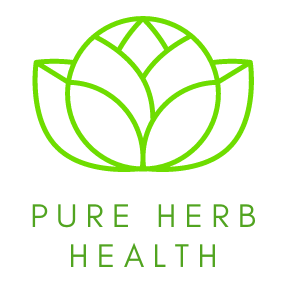Aloe vera (Aloe barbadenesis) is a succulent, cactus-like plant, belonging to the family Alliaceae. It grows in hot, dry climates. The plant can grow up to a height of 60-100cm, mature in 4-6 years and survives for a period of nearly 50 years under favourable conditions.
There are over 500 species of the Aloe genus, Aloe vera (L.), Aloe barbadensis Miller, is the most biologically active. They are native to southern and eastern Africa along the upper Nile in Sudan. It has been used in alternative medicine for the treatment of many conditions.
Its use can be traced back about 6,000 years ago to early Egypt. In ancient Egypt, it was given as presents during the funeral of pharaohs. Countries like Greece, India, Mexico, Japan, and China have equally used this herb for its health benefits.
Active Components of Aloe Vera
Aloe vera is known to contain around 75 potentially active constituents of which most fall under these groups: Vitamins, enzymes, minerals, sugars, lignin, saponins, salicylic acids and amino acids.
Let us now have a look at the specific vitamins, enzymes, minerals etc. that it contains:
Vitamins
- Vitamin A (beta-carotene); Vitamin C and E.
- Vitamin B1, B2, B6 and B12
- Folic acid and choline
Enzymes
- Aliiase, alkaline phosphate, amylase, oxidase, bradykinase, carboxypeptidase.
- Catalase, cellulose, lipase, cyclooxygenase and peroxidase
Minerals
- Calcium, chromium, copper, selenium, magnesium.
- Manganese, potassium, sodium and zinc.
Sugars
- Monosaccharides (glucose and fructose).
- Polysaccharides (glucomannans/ polymannose).

Organic Acids
- Sorbate, salicylic acid and uric acid.
Anthraquinones
- Aloin, barbaloin, isobarbaloin, anthranol, aloetic acid, aloe-emodin.
- Esters of cinnamic acid, resistannol, chrysophannic acid and emodin.
Fatty Acids and Steroids
- Cholesterol, campesterol, lupeol and sisosterol.
- Arachidonic acid and linoleic acid.
Hormones
- Auxins and gibberellins
Essential Amino Acids
- Methionine, phenylalanine, isoleucine, leucine, valine, threonine and lysine.
Non-Essential Amino Acids
- Histidine, arginine, aspartic acid, glutamic acid, proline, glycine, tyrosine.
- Alanine and hydroxyl proline.
Others
- Lignin and saponins
Health Benefits of Aloe Vera
Aloe vera is widely known and popular for its various health benefits. Some have been proven for a long time in traditional medicines used in the olden days but in modern times, more research is needed to back up various claims. Most of these benefits include:
-
Wound Healing
It can be used topically on the skin for increased healing of wounds, especially burns and sores. It reduces the healing time of burns. It contains glucomannan, a polysaccharide, and gibberellin, a growth hormone.
These two work together by interacting with growth factor receptors found on the fibroblast (a type of cell that contributes to the formation of connective tissue). This results in triggering the proliferation of fibroblast thereby increasing collagen synthesis and invariably making the wound heal faster.
-
Skin Protection
When the gel is applied to the skin, it produces metallothionein, a potent antioxidant protein that wards off hydroxyl radicals thereby protecting the skin from radiation damage and from free radical effects on the skin.
-
For Insect Bites
The gel can be applied to the skin to soothe insect bites due to its content that can act both as antipruritic and anti-inflammatory agent thereby reducing or preventing itching and inflammatory reactions on the skin.
-
Anti-Inflammatory Agent
Aloe vera contains a very potent anti-inflammatory agent that works by inhibiting the cyclooxygenase pathway and decreasing the prostaglandin E2 production from arachidonic acid. The gel acts as an antioxidant that fights or mops up free radicals that cause oxidative stress which is equally responsible for inflammation as well.

-
Digestion Aid
One of the most popular health benefits is its ability to aid digestion. Consuming aloe vera juice improves digestion and relieves hyperacidity, ulcers, and gastroesophageal reflux disease (GERD).
-
Laxative
Aloe vera is considered a natural laxative. The anthraquinones found in latex can help increase water in the intestines and trigger mucus secretion. It also boosts intestinal peristalsis thereby preventing constipation.
-
Anti-Ulcer
The gel has been demonstrated to have an anti-inflammatory effect on gastric ulcers and also a healing effect. The healing effect is mediated by increasing IL-10, an important cytokine for wound healing.
-
Antiviral Activity
The antiviral activities of aloe vera extracts may be due to the direct or indirect effects. Indirectly they show these effects by stimulating the immune system and directly by anthraquinones. The anthraquinone aloin inactivates various enveloped viruses such as Herpes viruses according to research.
-
Anti Bacteria and Anti Fungal
Extracts were found to have anti-bacterial and anti-fungal activities.
-
Moisturising and Anti-Aging
Aloe is rich in mucopolysaccharides which help in binding moisture to the skin. Aloe stimulates fibroblasts to produce collagen and elastin fibres thereby making the skin more elastic and less wrinkled. It also has cohesive effects on the superficial flaking epidermal cells by sticking them together, which softens the skin.
The amino acids present in Aloe gel can soften hardened skin cells. The zinc present in the gel acts as an astringent and tightens the pores. The gel also has an anti-acne effect.
-
Antiseptic Effect
The antiseptic effect is mainly due to the presence of 6 antiseptic agents: Lupeol, salicylic acid, urea nitrogen, cinnamonic acid, phenols and sulphur. They all from research inhibit fungi, bacteria, and viruses.
-
Dental Health
Aloe extracts were found to be effective in the maintenance of oral hygiene. Aloe vera is seen to be a good addition to toothpaste.
-
Anti Diabetic
The gel has been of great benefit to persons with diabetes. It has been used to reduce high blood sugar.
-
Antioxidant
The gel has been demonstrated to have an antioxidant effect.
-
Use in Diabetes-Induced Foot Ulcers
Aloe gel has shown some promise in the treatment of diabetes-induced foot ulcers where it showed significant wound healing and closure in research.

Dangers of Aloe Vera to Health
As ‘wonderful’ as Aloe vera is as a plant with multiple health benefits, care needs to be taken when using this plant as improper use can trigger reactions that would dangerous to your health. Let us look at some of these reactions:
-
Aloe Vera Can Cause Skin Allergy
Some people may be hypersensitive to some of the bioactive constituents in aloe vera, especially the aloe latex (aloin) that can cause skin irritation when it touches your skin.
The prolonged use of aloe vera gel can cause skin allergies such as inflammation and hives.
-
Aloe Vera Can Cause Diarrhoea
The latex is known to have a laxative effect and eating too much aloe leaves can have serious and potentially fatal side effects.
Some people who have used aloe vera as a laxative reported stomach discomfort and diarrhoea. This can be dangerous if it’s left untreated due to dehydration and electrolyte imbalance.
-
Aloe Vera Can Lower Blood Sugar
Aloe vera can help lower blood sugar levels. But, people with diabetes who take medicines to lower their blood glucose should be cautious if they are taking aloe supplements or raw aloe, to prevent lowering their blood sugar to dangerous levels.
Caution
- Do not use aloe vera if you are allergic to garlic, onions, or tulips.
- Avoid taking aloe vera within two weeks of any scheduled surgery
- Women who are pregnant or breastfeeding, and children under the age of 12, should avoid the oral use of aloe vera.
- The International Agency for Research on Cancer classified aloe vera whole leaf extract as Class 2B (which means that it is a possible cancer-causing substance for humans.
- The bioactive compounds in aloe vera might interfere with the liver’s detoxification process, further causing health complications.
- Do not consume aloe vera juice especially if you are dealing with stomach problems as stomach discomfort is one of the most common side effects of drinking aloe vera juice.
- Elderly and sick persons are generally advised not to consume it as it may lower the levels of potassium in the body, further causing irregular heartbeats, weakness and fatigue.
Aloe Vera Preparations
- You can use aloe vera directly from the plant if you have access to the plant by cutting each mature leaf close to the stem and cutting it up in cubes to allow easy extraction of the gel. Allow the yellow latex to flow off before you start your extraction of the gel with your knife. The gel then can be used in so many ways as you deem fit.
- There are so many preparations of aloe vera like in creams, gel, and ointments
- Aloe vera is sold in capsules or liquid form as supplements to be taken orally for internal use to promote health and well-being.
Conclusion
Aloe vera is a wonderful plant with many health benefits but should never be used excessively to avoid the dangers to your health. Persons that have been cautioned about its use should take note and avoid the use completely.
Please note that you should always consult with your doctor before you start to use any herbs or herbal products and should not for any reason replace your prescription with herbs or herbal products without consulting with your doctor.

